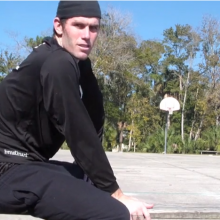Evangelism
To the dying church,
The ongoing decline of American Christianity is well documented. A quick Google search of “mainline decline” provides statistics, commentary, and variously tried and discarded solutions related to the struggles of liberal protestantism in the United States. More recently, these trends are showing up in conservative Christian circles as well. The attention of the media, religious scholars, and cultural warriors has been captured by the rise of the “nones,” the “spiritual but not religious,” humanists, and evangelistic atheists.
It is clear who’s ascending and who’s falling. Organized religion is doomed. You, dying church, are in trouble.
I have seen your sickness up close. The congregation where I was baptized — once full on Sunday mornings — now barely hangs on. The church where I preached in college has long since closed its doors. My pastor friends spend their days worrying about shrinking worship attendance and a lack of financial resources for carrying out their ministry. Denominations pause from fighting and splitting just long enough to make budget cuts and lay off staff.
What can be done? What should be done? Is this a new reality that we simply must accept?
During the Crusades, conversion by the sword was a common practice. Today, it’s conversion by the bullet.
A growing trend in evangelism among some more conservative churches is to promise people a gun in exchange for attendance.
Some more prominent examples from the past few weeks: In Kentucky, several churches are hosting “Second Amendment Celebrations,” which feature a steak-and-potatoes dinner followed by a conversion sermon preached by a former pastor, outdoor TV host, and gun enthusiast. Attendees are promised the chance to win a firearm in exchange for showing up and staying to the end of the event. In New York, one church is planning to end its Sunday worship service with a raffle for a free AR-15 to honor “hunters and gun owners who have been so viciously attacked by the anti-Christian socialist media and antichristian socialist politicians the last few years.”
The organizers of these events claim they’re an effective way to bring people to Christ. By uniting gun culture with Christianity, they’re reaching out to an unchurched population to lead them to salvation.
For me, action had become a way to look good and gain respect — but it obscured the more important inner work. It anesthetized the throbbing nerves of my aching interiority. And I needed it because my insides were bleeding so bad and hurting so raw from so many years of neglect that if I allowed myself to get off the action pill, it might just all catch up with me. An addiction to avoidance sanctioned by the church. Radical ruptures, indeed.
What I have asked myself in the days since those passionate experiences have left deafness and dryness in their wake is about the hard work of the Kingdom that has nothing to do with revolutionary activism. What about the work that is only done in the privacy of the human heart? Where are the voices encouraging people that they indeed can hear God speak within them — and that that is the Voice for which they ought to be straining? In all my followings, I rarely encountered a Christian leader who dared to enact Augustine's famous words and turn the Truth loose, trusting that it will defend itself.
And so it begins: “The Reason for the Season.”The bumper stickers and fridge magnets are flooding my mail box and being slapped into my hands kindly by ushers. Church signs from all denominations proclaim: “Jesus is the Reason for the Season!”The phrase has become ubiquitous.
But for me, it’s like nails-on-chalkboard. Indeed, he is the reason. Though we should probably draw our camera back for the wider view on the reason: God’s love (for he so loved the world … well, you know the rest). It is not the accuracy of the slogan that makes me cringe (because it is accurate), but rather, because it’s fluff. It is the religious equivalent to sappy pop music.
“Let’s keep Christ in Christmas!”
“Jesus: the gift that keeps on giving!”
Given the magnitude of Christ’s birth, are these slogans the best we can do?
Facebook, with its nearly 500 million users, connects us to the world around us and we are able to share everything from vacation pictures to memorial pages for those who have died. The site has moved past its original intent of social networking between friends; businesses, churches, civil groups, clubs, and even TV shows all have a presence on Facebook. Breaking news is reported, shared, liked and commented on, all within the confines of one website. The goal has moved from friendly conversations to specific advertisements and mass information around like issues, causes, and beliefs.
But what has Facebook done for Christianity? Has it helped or hurt the Gospel message? Recently I began to see more and more pictures shared that read “Like if you Love Jesus” or “Keep scrolling if you love the Devil, like if you love God.” These pictures call for Christians around the world to share their faith boldly and proudly on their Facebook page so that all who may grace it will know that they are a follower of Christ.
To be honest, I can’t stand them.
"And God spoke all of these words…You shall not give false witness against your neighbor." Exodus 20:1, 16
Several months back I overheard a conversation in an office waiting room. A young, 20-something guy entered the waiting room with his board shorts on and his windblown hair haphazardly tucked beneath his backwards baseball cap as though he’d just come in from surfing – not uncommon in the beach community of Jacksonville, Fla. He strolled confidently to the receptionist and asked her a question about the availability of a person he wanted to see, made an appointment, and it seemed his business was done and he’d be on his way. Instead he asked the receptionist where she was from, if she liked her job, and then talked about the weather. He then began to tell her about a Bible study he was leading and a little about his faith journey – for the longest time he felt lost, was starting to get in trouble, then he found Jesus, was born again, and began to set his life straight.
After sharing his testimony he asked the receptionist, “What religion are you?"
I used to be a Bible study leader.
And per the undergraduate campus fellowship tradition, it kept me busy: Sunday brunch community building, Monday night small groups, Tuesday leadership meetings, and Wednesday training sessions. Discipleship, one-on-ones, social activities, all-campus worship, weekend retreats, week-long retreats, all-day retreats, evangelism workshops, work day, capture the flag, scavenger hunts, and prayer meetings.
But what I remember most vividly are Thursdays.
Every Thursday. The evening walk through campus, past bars and restaurants beginning to fill with my peers, through a door almost hidden to the unaware, flanked by a man sitting on the ground. The man is dirty and unkempt. Sometimes he’s panhandling. Sometimes he’s asleep. On one occasion, he eats, still alone, from a small bag of popcorn one of my fellow Bible study leaders had brought to him.
The man catches my attention, yet I don’t show it. I don’t ask his name, or where he goes when he doesn’t sit by the door, or how he manages to stay warm through Midwestern winters. Thursdays are obligatory for Bible study leaders, so maybe that’s why I try to ignore the man. Maybe that’s why I feel I can’t stop to ask him his name. Or maybe being a Bible study leader is just a convenient excuse to keep walking.
So every Thursday I climb the stairs behind that door, leaving the man below, allowing him to fade into the background until he is just another distant person, indistinguishable from those filling the pub across the street or sleeping on their textbooks in the library across the quad. Suddenly the band is on stage, the rhythm of worship distracts me, channeling an energy that gives way to reflection, to reverence, to calm. Every Thursday.
And then it’s over. And like all good Bible study leaders, I greet friends, practice fellowship, welcome newcomers. We leave in groups to study or socialize. I don’t notice if the man is still there when we leave.
This man has come to represent many things to me in my faith journey, and something I’ve encountered this week brings my thoughts back to him.
In “Waiting on God,” from the July 2013 issue of Sojourners magazine, Episcopal priest Linda Kaufman shares how she fell in love with Jesus all over again. While exploring myriad ways to know Christ, Kaufman watched “How Great Leaders Inspire Action,” a TED Talk by Simon Sinek, which helped her realize that people make decisions based on values and belief rather than reason or logic.
Nearly 35 years after conservatives launched a takeover of the Southern Baptist Convention, a new divide is emerging — this time over the teachings of 16th-century Reformer John Calvin — that threatens to upend the nation’s largest Protestant denomination.
When Southern Baptist delegates gather for their annual meeting next week in Houston, they’ll be presented with a report, “Truth, Trust, and Testimony in a Time of Tension,” that focuses on the growing popularity of Calvinism among Southern Baptist pastors and seminaries.
At stake are fundamental beliefs on who can be “saved,” the need for evangelism, and whether Baptists will retread familiar battlefields on the proper roles of men and women.
WHEN I FIRST started attending the Church of the Apostles in Fairfax, Va., we had no church building and met in the cafeteria of an elementary school. There were about 50 of us and a brand new priest, Rev. H. Lawrence Scott (“Call me Renny”). It was an Episcopal church in Fairfax County in the 1970s. Really, how much trouble could I get into?
What I didn’t know was that it was a charismatic, Bible-believing, tongues-speaking church. The praise band led us in worship. We sang and raised our hands. There was speaking in tongues and interpretation.
When I committed my life to Jesus in October 1977, I was sitting in the living room with Renny and his wife, Margaret. We had lunch. We talked. I disagreed with them about this Jesus stuff. We talked some more, and I was shocked to find myself saying “yes” when Renny asked if I was ready to commit my life to Jesus. I just said sure—then Renny made me pray. I remember walking to the car and having a brief conversation with God, the culmination of which was that I said I would never be a missionary to Africa. It’s funny what I thought were the key questions then.
Because I am an all-or-nothing person, I threw myself entirely into this new life. Within a few weeks I was baptized in the Spirit. I went to a Bible study every week. When I heard you were supposed to have a quiet time, I did that religiously. Every morning I sat and waited on God: Bible reading and prayer, other spiritual reading, and index cards to help me remember. Every morning for years I got up very early and met with Jesus in the quiet before dawn. Between my study and the praise songs we sang at church, I learned hundreds of scriptures by heart.
It’s almost impossible to talk about Christians in sports without talking about Tim Tebow (case in point). But there’s another University of Florida grad who has gained attention from another sport — Ultimate Frisbee.
Unlike mainstream sports like baseball and football (and futbol), Ultimate is a relatively new sport. In fact, it is not much older than Sojourners, as it was reportedly invented in 1968 (Sojourners was founded in ’71). And like Sojourners, it has gained momentum through word of mouth to the point that it is a nationally recognized sport.
Even with the infiltration of high school sports, college teams, and semi-professional clubs, Ultimate is, for the most part, faceless, with the exception of one man: Brodie Smith. Smith grew to be a nationally recognized Ultimate player through his Youtube trick shot videos.
On a recent rainy Saturday, about 125 Catholics packed a basement conference room, many of them older, most of them lay people. Many were representing their parishes.
They gathered here to learn how to spread the faith, a concept that is both fundamental to Christianity and nearly foreign to modern Roman Catholics.
For the first hour of the conference, Kenneth Livengood, a parishioner at Holy Trinity Parish in St. Ann, Mo., detailed one way — door-to-door evangelization, a missionary strategy more familiar to Mormons or Jehovah’s Witnesses.
Nuanced or not, are Christians, especially evangelicals, perceived as being against things like peacemaking? Or is it that their version of peacemaking is backward looking toward some halcyon day of yore (or 1950s America)? At this point in the book, Rob spends a lot of time walking us through the development of justice in the Bible from “eye-for-an-eye” to “turn the other cheek.” I want you to read this chapter for yourself and make your own conclusions about what Rob sees and tell me if you see it, too.
Rob's thinking is that people are gradually cluing in to God's vision of a world without retributive violence. “Revenge always escalates,” he writes. Always.
NEW YORK — The apostle bellowed in Portuguese to a packed crowd in a rented Astoria, Queens, church.
“Get out, spirit of death. Now you are burnt, now you are plucked out by my God!”
A blood-curdling shriek rose from one of the front pews, but Apostle Valdemiro Santiago, founder of the Worldwide Church of God’s Power, didn’t flinch.
“Don’t be afraid, church, by these screams,” Santiago reassured the crowd. “They are the evil spirits being defeated.”
Fourteen years after he started out in the countryside outside Sao Paulo, Santiago sits at the helm of a booming Pentecostal church in Brazil, the world’s fastest-growing evangelical country. He now leads 4,000 churches, including 10 in the United States, where fiery worship and exorcisms form part of the appeal.
No doubt that Resurrection Sunday (or otherwise known to the masses as Easter) is one of the most significant events and Sundays for the Church. While it wouldn’t be wise to reduce the totality of God’s narrative to one event, the death and resurrection of Christ is undoubtedly, crucial. Our faith and the credibility of the Gospel hinges upon the historicity and veracity of the resurrection of Christ.
The Apostle Paul articulates this truth succinctly and powerfully:
“And if Christ has not been raised, then all our preaching is useless, and your faith is useless.” – 1 Corinthians 15:14
For this reason, Easter is often referred to as the Super Bowl for Christian churches.
As expected, a great amount of time, energy, ideas, and resources are invested into this weekend. And I get it. And I agree with it – in part.
I love St. Patrick’s Day.
The one day of the year when, for better or worse, Western culture allows me to claim my non-existent inner Irishman.
Kiss me, baby.
Okay. I’m done.
There are many stories and legends about the fascinating life of St. Patrick. One of the most famous legends recounts how this great 5th century saint banished all of the snakes from Ireland. Bad snakes. Bad.
My work at the Raven Foundation during the last few years has taught me to be suspicious of such legends. In fact, we might call them myths. Myths cover up scapegoating of human beings by telling the story in a more innocuous way. So, instead of saying we banish humans, we say we banished snakes.
Interestingly, the last glacial period (some 10,000-100,000 years ago, depending on whom you ask) beat St. Patrick to the snake banishing. But, Christian tradition has given Patrick all the credit. So, if there weren’t snakes around during Patrick’s day, what’s with the legend?
Modern passages from Oswald Chambers' classic devotional reader "My Utmost for His Highest."
The Whole Gospel
Ken Wytsma's Pursuing Justice: The Call to Live & Die for Bigger Things is a passionate evangelical argument for making justice central to a gospel-rooted life. For those who already embrace social justice in their faith, it is a spiritual refresher and resource for engaging with more wary Christians. Thomas Nelson
Their Future, Our Future
Girl Rising, a feature film on the power of education in the lives of nine girls from the developing world, releases March 7. It is at the center of a social action campaign for girls' education called 10x10, launched by former ABC News journalists. Learn more, advocate, or organize a screening. 10x10act.org
THE NAME OF Oswald Chambers is well known to millions of Christians for a collection of notes gathered by his wife from his sermons and published as a devotional reader in 1927, 10 years after his death, under the title My Utmost for His Highest.
Like many Christians, I first read this devotional guide while still in college and harbored the suspicion that this man must have been a somber if not puritanical pillar of the faith. The gaunt, almost cadaverous portrait of him included in many editions of his most famous work contributed much to these impressions of mine. It turns out, though, that I did not know the human being who was Oswald Chambers.
I recently stumbled upon a crumbling book in the library stacks of a local university that greatly altered my perceptions of him. It was an out-of-print collection of tributes by those who knew him best, along with his personal diaries from his travels abroad as an itinerant preacher and as a YMCA chaplain in World War I until his sudden death from complications following an emergency appendectomy at the age of 43. As I read through these documents, I found myself strongly attracted to Chambers as a person and captivated by his vision of what it means to be a believer in the modern world.
AS A STUDENT of art at the University of Edinburgh, Chambers was not known among his peers for his religious devotion, which he had received from devout Scottish Baptist parents. He was better known, rather, for his outgoing personality and his knowledge and love of poetry, art, and music. He was gifted not only with a keen aesthetic sensitivity and outgoing temperament, but also with a rigorous mind. After completing his studies he became a tutor at Dunoon College in Scotland in 1898, where he taught logic, moral philosophy, and psychology for several years.
ONCE UPON A TIME, long before there were birth certificates or Social Security numbers, there were immigrants. If you are or have been an immigrant without documents, you may think life must have been easier then, that you would never be afraid of getting found out and deported.
But life was not easier—at least not in the first century C.E., in the five mostly rural Roman provinces in what is now Turkey. Especially if you were a follower of Jesus.
As an immigrant, you are called by one of two names in Greek, the trade language of the time. You are a paroikos if you had fled or been forced from your native community for any personal, economic, or political reason and were trying to eke out a living in a foreign land. Oikos refers to "house" or the economic structure of the extended household in which native people lived. Para means "alongside of." In other words, you are "away from home," a resident alien on the edges of ordinary life.
Consequently, you have fewer rights than full citizens. Never able to own land, you are a sharecropper, a craftsperson, or perhaps a small trader or shopkeeper. You may have been driven off your land by high taxes you could not pay, or perhaps you are a second son and will not inherit your father's land. You may be the wife or daughter of such a man, or a widow driven to support yourself and your children. You have legal restrictions regarding intermarriage, commerce, and succession of property. You have no political rights, such as voting in public assemblies or joining in guilds. Unlike citizens, if you are charged with a crime, you can be tortured.














